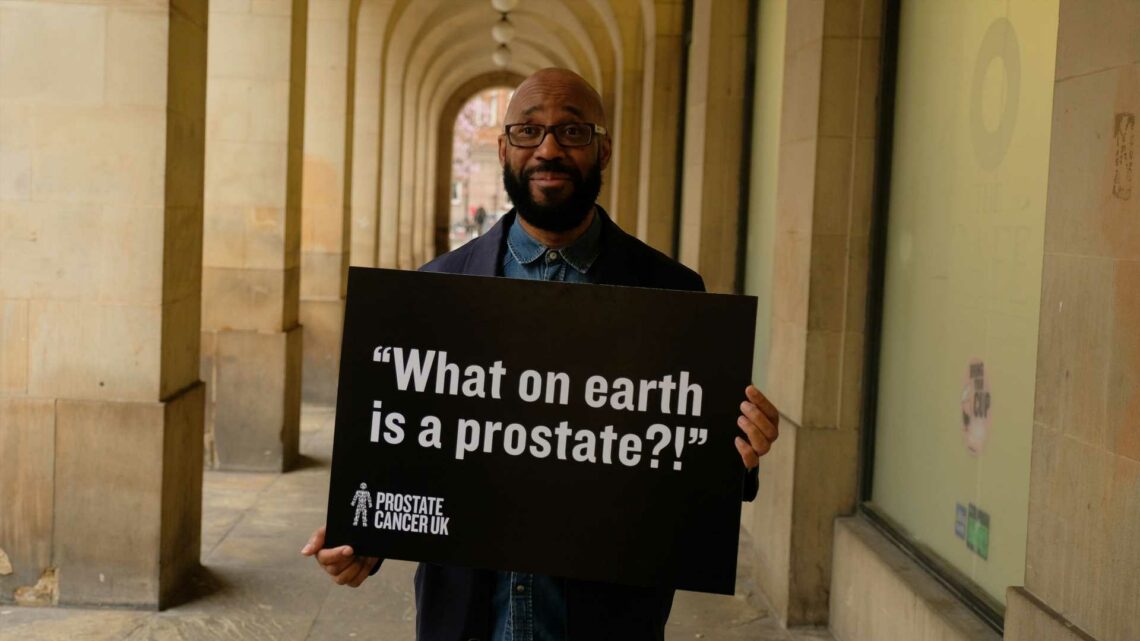
What on earth is a prostate?! | The Sun
June 9, 2023IS IT a bird? Is it a plane? Is it Pro-State, a US soccer team? Hmm. It’s safe to say for many that the prostate is something of a mystery.
In fact, when it comes to this perplexing male gland, almost half of men (44 per cent) admit they don’t know where it is. And, according to a OnePoll survey of 2,000 men on behalf of Prostate Cancer UK, a whopping 74 per cent said they don’t know what their prostate does.
In medical terms, the prostate is actually a wonder, but it also happens to be where the most common cancer in men starts. One in eight men will get prostate cancer.
If you’re over 50, black and over 45, or your dad or brother has had it, you’re at even higher risk – a sobering thought, given that more than 12,000 men die from prostate cancer each year.
Catching prostate cancer early saves lives. So it's time we all learned more about what it is and how men can quickly check their risk of developing it.
Basically, the prostate gland sits just below the bladder and in front of the rectum. It’s about the size of a walnut and its most important job is to help make semen – the fluid that carries sperm. So it’s pretty clever – and well worth keeping an eye on, wouldn’t you agree?
But I’d have symptoms, right? No, early-stage prostate cancer often has no symptoms, so men shouldn’t wait for them – but they should know their risk.
To help men know their risk, catch prostate cancer early and save lives, Prostate Cancer UK has an online risk checker that can be completed in under a minute. It’s anonymous, easy to use, and it might just save your life. So why not take the risk checker today or share it with a man you love?
- Take Prostate Cancer UK’s 30 second risk checker: it could save your life
Prostate Cancer UK is the largest men's health charity in the UK, and works to give men the power to navigate the disease, providing information, support and guidance for men and those who love them.
The charity also funds cutting-edge prostate cancer research that works towards building an effective screening programme to help many more men catch prostate cancer early, and save lives.
The facts behind the fiction
MYTH It’s not one of the cancers we need to worry about, right?
FACT Unfortunately this isn’t true. Prostate cancer is THE most common cancer in men, killing 12,000 each year.
MYTH Aren’t all men at the same risk?
FACT Nope. One in eight men will get prostate cancer in their lifetime. You’re at greater risk of prostate cancer if:
- You’re black and over 45
- You’re over 50
- You have a family history of prostate, breast or ovarian cancer
MYTH I would know if I had prostate cancer – I would have symptoms, right?
FACT Cancer is a sneaky one. It can grow slowly. Early prostate cancer often has no symptoms, so don’t wait to feel any changes.
MYTH Isn’t the first test a finger up the bum?
FACT Let’s not get ahead of ourselves… the first thing is a PSA (prostate specific antigen) blood test. A raised PSA level may suggest you have a problem with your prostate, but not necessarily cancer. A rectal exam can give your doctor useful information about how healthy your prostate feels. It’s painlesss and quick (literally seconds).
MYTH Won’t my doctor invite me for a test?
FACT Alas, there is no screening programme for prostate cancer in the UK. So you need to be proactive and not wait for a letter or call from your GP.
It’s vital you understand your risk and what to do about it. Take Prostate Cancer UK’s online risk checker. It takes 30 seconds.
Ian McNeil, 56, a former management consultant from Glasgow, was 52 when he was diagnosed with advanced prostate cancer. He had no symptoms, no family history and was fit and active.
Following treatment, he’s now fully recovered and is spreading the word to other men to learn about their risk by using Prostate Cancer UK’s risk checker.
“Through my work, I got an annual medical check-up, and they suggested a PSA blood test as part of that package.
“I didn’t know much about prostate cancer apart from the usual myths that you don’t want to go and get tested because you’ll get a finger up your bum. But it was just a simple blood test. And my PSA level was a little bit high.
“I got it tested every year after that and it started to tick up a bit. Then I missed a year when I was changing jobs, and when I got it tested again, my level had gone through the roof.”
In 2018, Ian was referred to a urologist, who revealed to him the shocking news that he had prostate cancer.
It is a taboo subject, it’s something ‘down there’ and it’s to do with your sexual organs
“I thought this was an old person’s disease, but I was 52. They told me if I didn’t do something about it, I wouldn’t see my 60th.”
Within weeks, Ian had a prostatectomy – surgery to remove his prostate – but he also needed radiotherapy and hormone therapy.
“They thought they had got it all and I wouldn’t need any further treatment, but when I got my PSA tested a month or two later, it was still too high. The cancer had jumped out of the prostate into my lymph nodes.
“So, I had radiotherapy for seven weeks and something called hormone treatment therapy for two years. Intense? Just a bit!”
Five years on, Ian has regular six-monthly blood tests and check-ups. Happily, the cancer is now undetectable.
“My PSA went to zero about six to eight months after my radiotherapy – a sign the treatment had worked. To begin with, every time I got tested, I was a nervous wreck. Now I just don’t worry about it.
“It is a taboo subject, it’s something ‘down there’ and it’s to do with your sexual organs. And that might be something you don’t really want to talk about. But that needs to change – this is about possibly saving your life.
“I’ve told my sons they need to get tested. If I’m in the pub with guys my age and they’re joking, ‘Oh how many times do you get up in the night?’ I’m like, ‘Well have you been for a test?’
“I didn’t have any symptoms, and I think that’s all the more reason we need a screening programme. The earlier you catch it, the better. But, for now, at least make sure you assess your own risk and take action if needed.”
He adds: “I feel good and I know it’s been treated. Fingers crossed it’s gone forever.”
Separate fact from fiction and help save lives. Check your prostate cancer risk now. Find out more on Prostate Cancer UK’s website
Source: Read Full Article



